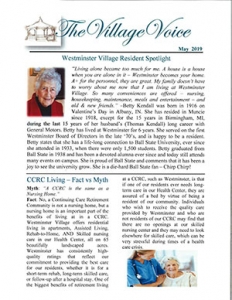Chaplain’s Corner: XLVIII
“Coming Home”
Jesus’ most famous story has no official name. Over the centuries it’s been called the Parable of the Prodigal Son or the Lost Child or the Unforgiving Sibling or the Waiting Father.
We know for sure there are three characters in the story. There is the rebellious kid who runs away and makes a mess of his life. There is the Goody Two Shoes big brother who stays at home to administer the farm and who has perfect attendance at Sunday School. Then there is the father who loves them both and who doesn’t care what people think of him. So who is the main character? We can make a case that each has a place in the spotlight. Let’s look at each one in turn over the course of the parable.
Jesus’ story which is found in Luke 15: 11-32 begins with a demand: “Father, give me my share of the estate which falls to me.” There is edginess in this request. The Palestinian audience must have been appalled.
In so many words, he was saying to his father, “Drop dead. All I want from you is your money that will be mine. And if you don’t mind, let’s pretend you are gone now!” What a painful insult to any parent. With a breaking heart, the father complies. He divides the property.
The boy takes off into the wide, wide world. In Judeo-Christian tradition, this describes the relationship that all of us have had with God in one way or another. “Father, I wish you were dead because then I would be much happier if you weren’t hovering about what I say and do. So give me your blessing and leave me alone.”
What does God do when we relate to him like this? Are we really happier when you are out of relationship with God? God’s love is such that he doesn’t stand on the megaphone, “You are inexperienced and compromised. Return home at once.” Incredibly, God lets us go.
At first things go brilliantly for the boy in Jesus’ story. But the word prodigal (excessive, irresponsible, extravagant) isn’t found in the text. But his actions are associated with his over-the-top behavior. He quickly runs through all his assets and is given the ultimate nightmare job of feeding the pigs. He gradually comes to his senses and realizes he is far from where he started and feels in his gut the pain of being separated from his father. But what would his dad do if ever he shows his pig-headed face again?
That would be a no-brainer in the first century Jewish society where the father would beat the living tar out of such a disrespectable son. But this boy wonders, in his heart of hearts if there is any way his father could take him back? He is haunted by the last look on his father’s face before he left.
He begins to formulate a plan. He will play “Let’s Make a Deal” in his relationship with his father. “Father, I don’t deserve to be your son anymore. Could I at least be one of the farm workers?”
The last thing he expects is that his father is about to clean that slate for him. Luke 15:20 tells us “But while he was a long way away, the father was filled with compassion for him; he ran to him, put his arms around him and kissed him.”
The astonishing detail is that the father “runs.” In that culture after all that had happened was to risk ridicule. The Father could care less.
While we ourselves are still a long way off-even in our far countries of doubt, fear, anger, cynicism and hopelessness-the Father is waiting.
What would it be like to turn toward home? He will “run” to receive us with open arms.
Faithfully,
Ron Naylor, Chaplain




